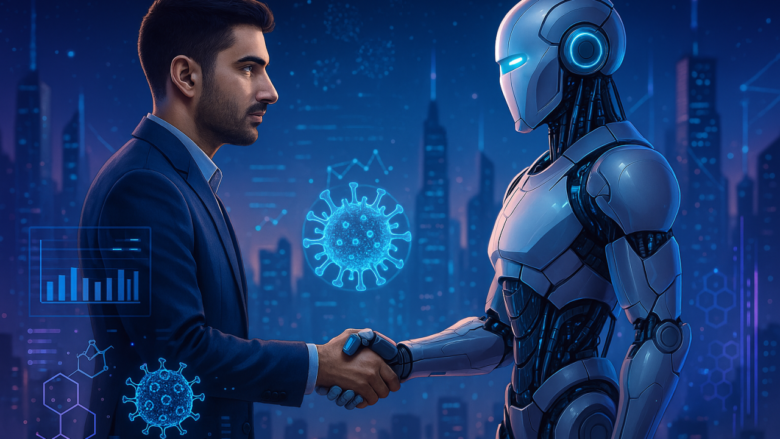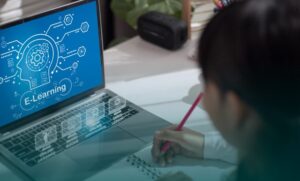Over the next five years, AI will transform the way we use our homes. With smart lighting systems that respond to your tastes and habits and AI voice assistants that can handle complex conversations and control multiple devices, our living spaces will become more responsive and intuitive. Refrigerators, washing machines, and thermostats can learn your behavior, anticipate your needs, recommend usage adjustments, and optimize energy consumption. Automation and learning will make daily life easier and reduce household chores.
Transportation Revolution
The impact of AI on transportation is growing. Over the next five years, the number of semi-autonomous and autonomous vehicles will increase. These cars will use AI to drive, reduce traffic congestion, and improve safety. AI will also enable predictive car maintenance, alerting drivers before a car has a major malfunction. Route optimization, real-time tracking, and passenger demand forecasting will improve the efficiency of public transportation and the customer experience thanks to AI. Smarter car-sharing services will connect drivers and passengers, optimizing travel routes to save time and fuel.
Precision Medicine at your Fingertips
AI will be the key to personalized healthcare. In five years, AI wearables will monitor your health and provide real-time feedback. These devices will alert users and doctors before abnormalities in heart rate, blood pressure, and other vital signs become dangerous. More advanced virtual health assistants will provide personalized health recommendations, prescription reminders, and early symptom-based diagnoses. AI will simplify the process of scheduling doctor’s appointments, analyzing lab results, and achieving health goals.
Enhanced Teaching and Learning
AI integrated into learning environments will transform education. Personalized learning systems will provide tailored curricula and real-time support based on each student’s abilities, limitations, and learning speed. Virtual AI tutors will help students with homework, explain complex topics, and assess their learning progress 24/7. AI will also help teachers with automatic grading, evaluating student performance, and identifying areas where students need more help. Personalization and efficiency will make education more accessible and successful for people of all ages.
Smarter Retail and Consumer Services
AI will enhance online and offline shopping. In the future, AI will evaluate your shopping behavior and recommend products, promotions, and discounts. Talk to voice-activated store associates to discover special offers, replenish daily inventory, and ask product questions in real time. AI will support smart shelves, cashierless checkouts, and inventory management systems in physical stores to ensure products are in stock. Your personalized shopping experience will be smoother, faster, and more enjoyable.
Empowering the Workplace with Automation and Insights
AI can revolutionize the workplace by automating tedious routine tasks and improving decision-making. In five years, AI technology will be able to generate emails, organize meetings, compile reports, and provide real-time data analysis results. Administrative work will be replaced, allowing employees to focus on creative and strategic goals. AI will also play a crucial role in recruitment, training, and performance management. AI-powered platforms will match employees with roles, provide personalized learning modules, and provide actionable feedback to improve work efficiency and satisfaction.
Simplifying Financial Management
AI will simplify and improve personal budget management. AI applications can track expenses, assess income, and recommend budgets. In the coming years, virtual financial advisors will provide investment advice based on your goals and risk appetite. AI will track market patterns in real time and make recommendations for financial movements. Faster and more accurate fraud detection will protect users from fraud and unauthorized transactions. AI will help with budgeting, investing, and financial decisions.
Personalized Entertainment
AI will revolutionize entertainment. Today, AI recommends movies, music, and TV shows on streaming services, but personalization will increase even further over the next five years. Your mood, time of day, and historical behavior will all influence AI’s content curation. Behaviors like exercising, relaxing, and commuting can also lead to other recommendations. AI-powered video games and virtual concerts will also become increasingly popular. These innovations will make entertainment experiences more immersive, engaging, and personalized.
Better Language Translation and Communication
AI-powered language tools will continue to improve global communication. Soon, real-time language translation will be more accurate and fluid, making it easier for people who speak different languages to communicate. AI will help with writing messages, professional emails, public speeches, and presentations. Smart devices will understand tone, intent, and context, allowing for more natural and meaningful communication. Whether you’re traveling or working in a multinational team, AI will overcome language barriers.
Plan and Optimize Your Daily Time
AI helps you plan, manage, and optimize your day. Meetings in your calendar app are automatically adjusted based on priorities, travel time, and energy. AI recommends the best times to focus, socialize, and rest, improving your work-life balance. Smart reminders remind you of deadlines and suggest when to start tasks to meet deadlines. These systems learn your habits and preferences, helping you get the most out of your day with minimal effort.
Conclusion
AI is now part of our daily lives. In five years, AI will change the way we live, work, communicate, travel, and care for ourselves. From homes that anticipate your needs to workplaces that support your efficiency, from life-saving health monitoring to entertainment that understands you, AI promises to make life easier, more efficient, and more personalized. While data protection and ethical use must be approached with caution, the development of AI suggests that human life will improve significantly in the future.
FAQs
1. Will AI replace all jobs in five years?
No, AI will not replace all jobs. It automates tedious tasks and opens up new possibilities, especially in careers that require creativity, emotion, and critical thinking.
2. AI in personal devices—is it safe?
Most consumer AI technologies are safe, but users should be aware of privacy and data-sharing protocols.
3. What impact will AI have on education and children?
AI will support teachers, provide personalized instruction, and give students the tools to learn at their pace, potentially improving academic performance.
4. Can AI help with mental health?
AI-powered applications are being developed to track mood, guide therapy, and provide 24/7 emotional support for mental health.
5. Do I need IT skills to use AI technology on a daily basis?
Of course not. Most AI solutions are intuitive and user-friendly, making them easy to get started for even non-technical users.




